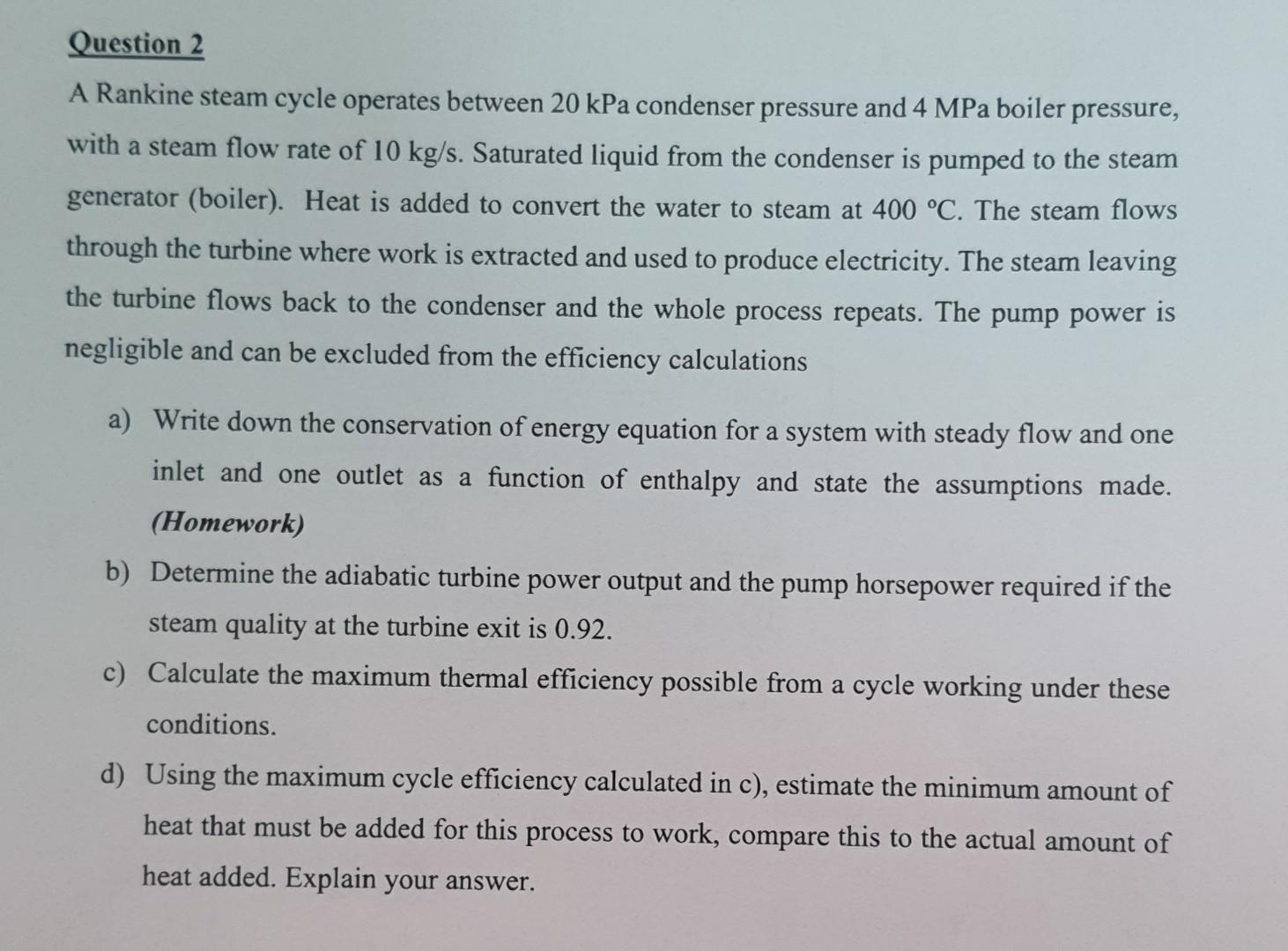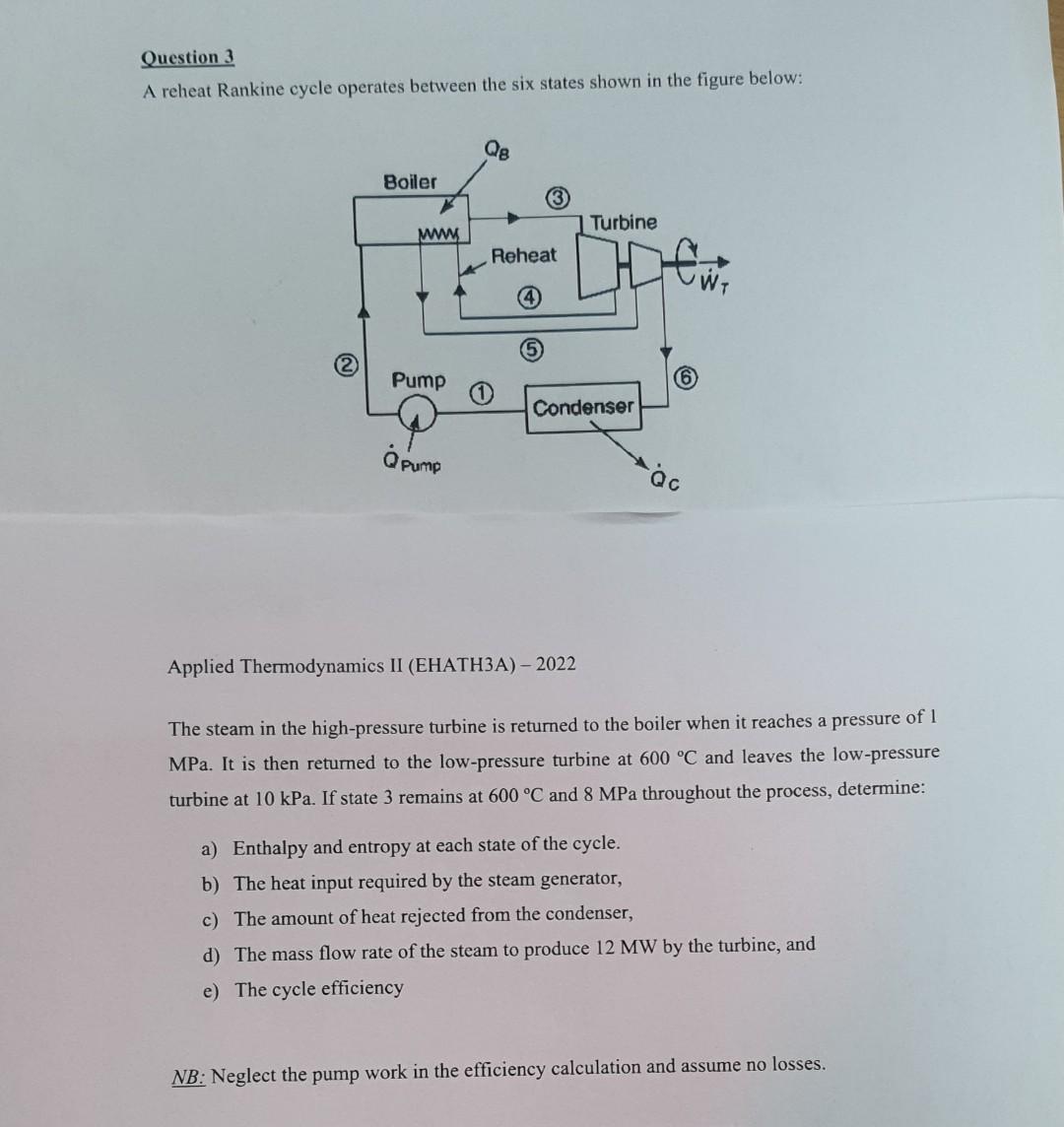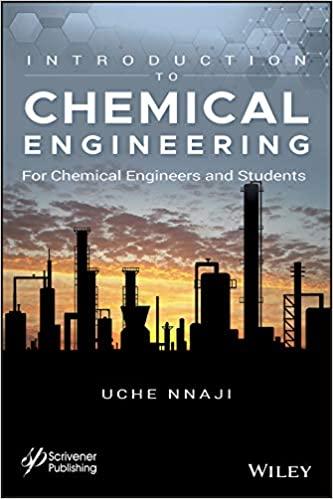Answered step by step
Verified Expert Solution
Question
1 Approved Answer
Question 2 A Rankine steam cycle operates between 20 kPa condenser pressure and 4 MPa boiler pressure, with a steam flow rate of 10 kg/s.


Question 2 A Rankine steam cycle operates between 20 kPa condenser pressure and 4 MPa boiler pressure, with a steam flow rate of 10 kg/s. Saturated liquid from the condenser is pumped to the steam generator (boiler). Heat is added to convert the water to steam at 400 C. The steam flows through the turbine where work is extracted and used to produce electricity. The steam leaving the turbine flows back to the condenser and the whole process repeats. The pump power is negligible and can be excluded from the efficiency calculations a a) Write down the conservation of energy equation for a system with steady flow and one inlet and one outlet as a function of enthalpy and state the assumptions made. (Homework) b) Determine the adiabatic turbine power output and the pump horsepower required if the steam quality at the turbine exit is 0.92. c) Calculate the maximum thermal efficiency possible from a cycle working under these conditions. d) Using the maximum cycle efficiency calculated in c), estimate the minimum amount of heat that must be added for this process to work, compare this to the actual amount of heat added. Explain your answer. Question 3 A reheat Rankine cycle operates between the six states shown in the figure below: Q Boiler Turbine www Reheat 5 Pump 6 Condenser & Pump Applied Thermodynamics II (EHATH3A) - 2022 The steam in the high-pressure turbine is returned to the boiler when it reaches a pressure of 1 MPa. It is then returned to the low-pressure turbine at 600 C and leaves the low-pressure turbine at 10 kPa. If state 3 remains at 600 C and 8 MPa throughout the process, determine: a) Enthalpy and entropy at each state of the cycle. b) The heat input required by the steam generator, c) The amount of heat rejected from the condenser, d) The mass flow rate of the steam to produce 12 MW by the turbine, and e) The cycle efficiency NB: Neglect the pump work in the efficiency calculation and assume no losses
Step by Step Solution
There are 3 Steps involved in it
Step: 1

Get Instant Access to Expert-Tailored Solutions
See step-by-step solutions with expert insights and AI powered tools for academic success
Step: 2

Step: 3

Ace Your Homework with AI
Get the answers you need in no time with our AI-driven, step-by-step assistance
Get Started


